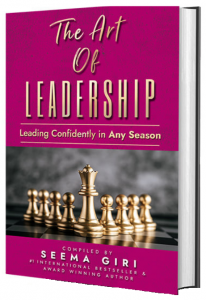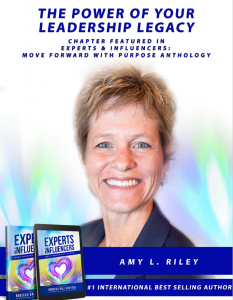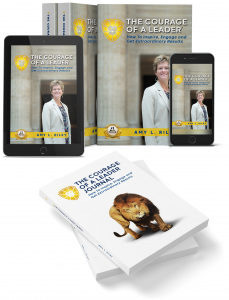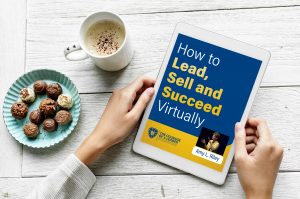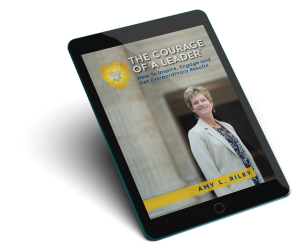Courtney Wright has made bold business moves throughout her career. In this episode, we discuss how she does it. How does she courageously and continuously take action that leads to impressive business results? You’ll learn that her secret to success is much more about what she believes and thinks, than what she does.
About the Guest:
Courtney Wright values helping people and believes in “the grind.” An entrepreneur, podcast host, innovator, problem solver, wife, and mother, Wright wears many hats – the first of which goes on in the wee hours of the morning.
Wright founded CDW Merchants, the leading 3D visual retail displays and E-commerce gift packaging provider for the nation’s top retailers including Kate Spade, Victoria’s Secret, and Club Monaco. In 2016, Courtney packaged CDW for the last time and sold it to Bunzl PLC (traded on the FTSE 100). That same year, Wright bought Gemini Builds It! and Showcase Acrylics, a leader in the framing, moulding, and custom display industry.
As CEO, Wright quickly expanded their offerings to become a well-known name in E-commerce, Design, Corporations, Museums and Institutions, PPE and Healthcare, as well as the Hospitality and Events industries. She continues to look for organic growth opportunities through additional acquisitions. With her solid mix of entrepreneurial foresight, creativity, and hustle mentality, it was only natural that Wright would develop a platform to share her highly sought-after business advice.
The Ladyboss Podcast by Courtney Wright is a modern-day guide to business, offering listeners real conversations with other successful leaders and entrepreneurs to discuss failures, successes, and strategies.
https://www.youtube.com/channel/UCpfF7CdCQ7qoxIElkWSpiRQ
You can contact her at Courtney@geminibuildsit.com or 847-417-5980.
About the Host:
Amy L. Riley is an internationally renowned speaker, author and consultant. She has over 2 decades of experience developing leaders at all levels. Her clients include Cisco Systems, Deloitte and Barclays.
As a trusted leadership coach and consultant, Amy has worked with hundreds of leaders one-on-one, and thousands more as part of a group, to fully step into their leadership, create amazing teams and achieve extraordinary results.
Amy’s most popular keynote speeches are:
The Courage of a Leader: The Power of a Leadership Legacy
The Courage of a Leader: Create a Competitive Advantage with Sustainable, Results-Producing Cross-System Collaboration
The Courage of a Leader: Accelerate Trust with Your Team, Customers and Community
The Courage of a Leader: How to Build a Happy and Successful Hybrid Team
Her new book is a #1 international best-seller and is entitled, The Courage of a Leader: How to Inspire, Engage and Get Extraordinary Results.
https://www.linkedin.com/in/amyshoopriley/
Link mentioned in the podcast
The Inspire Your Team assessment (the courage assessment): https://courageofaleader.com/inspireyourteam/
Thanks for listening!
Thanks so much for listening to The Courage of a Leader podcast! If you got inspired and/or got valuable leadership techniques you can use from this episode and think that others could benefit from listening, please share using the social media buttons on this page.
Do you have questions or feedback about this episode? Leave a comment in the section below!
Subscribe to the podcast
If you would like to get automatic updates of new The Courage of a Leader podcast episodes, you can subscribe to the podcast on Apple Podcasts. You can also subscribe in your favorite podcast app.
Leave us an Apple Podcasts review
Ratings and reviews from our listeners are extremely valuable to us and greatly appreciated. They help our podcast rank higher on Apple Podcasts, which helps us ignite The Courage of a Leader in more leaders! Please take a minute and leave an honest review on Apple Podcasts.
Teaser for next episode
Tune in next for The Intentional Unicorn: Finding Strengths, Talents and Authenticity in Yourself and Your Team with best-selling author and inspiring speaker Jennie Lopez.
Transcript
Courtney Wright has made bold business moves throughout her career. In this episode, we discuss how she does it. How does she courageously and continuously take action that leads to impressive business results. And you're going to learn that her secret to success is much more about what she believes and thinks, than what she does.
Amy Riley:Welcome to the Courage of a Leader podcast. This is where you hear real life stories of top leaders achieving extraordinary results. And you get practical advice and techniques, you can immediately apply for your own success. This is where you will get inspired. And take bold, courageous action. I am so glad you can join us. I'm your host, Amy Riley. Now, are you ready to step into the full power of your leadership and achieve the results you care about most? Let's ignite the Courage of a Leader.
Amy Riley:Courtney, you have made some bold moves throughout your career, founding companies making acquisitions, entering new markets, just to name a few. I would say that you have the courage of a leader. What enables you Courtney to make these courageous moves?
Courtney Wright:Well, Amy, when you say it all like that I could get myself even scared. But what I think is one of my secret sauces is that I really believe that I can work through anything. And I don't spend a lot of time or any time thinking about failure, because I really feel like anything is able to be worked through and challenges are part of our journey. And in fact, what make us stronger.
Amy Riley:What led you to that conviction, Courtney, that anything can be worked through?
Courtney Wright:Well, I had really great parents, I really owe so much to just my first, you know, 17 years of tutelage as they would call it. I think that, you know, I grew up in a time where not, there weren't a lot of career working women, but yet my parents really told me and I believed it, that I could be anything. And that they instilled in me that there was no small thinking, and that the sky was the limit. And so I didn't know any better to think differently.
Amy Riley:Yeah, I love that. And I'm also thinking, okay, listeners, like, we don't have to think we're doomed if our parents didn't have that talk track going on regularly, right, and the power for each of us as leaders as colleagues to support those around us. And to say, you can do this, this initiative, we're rolling out, we've got this, we might not know how it's all gonna go. But we can figure it out along the way.
Courtney Wright:I think that's right, I think starting is what has been a real success story for me is figure it out along the way. It's not figure it out, and then start it start. Yeah, you will figure it out. And that's just been the way I have viewed things as inspiration is so hard to come by. So when you have it and you know you're onto something that could be really powerful for your team, or your client or your career or, you know, whatever it is your family. You gotta get going.
Amy Riley:That is really powerful, Courtney, just get started, take the first step. Because if we are going somewhere we've never gone before, if we're doing something for the first time, if we're taking this business in a new direction, then we're not going to know how soon phase three, four and five are going to look. We're not able to figure it all out ahead of time. So just Yeah, throwing throwing the iron in the fire and get it started.
Courtney Wright:I think it's just really an underrated tool that people can all use instead of being perfect about something. I like to say let's be poor, fast
Amy Riley:tion's top retailers. Then in:Courtney Wright:Amy, it's my pleasure, what a way to start my day and my week.
Amy Riley:So one of the topics that gets discussed on the lady boss podcast, and I want to talk about it here as well. You already said that you don't spend a lot of time thinking about failures. How do you do that? Because I feel like so many of us so many leaders are hesitant to make those bold moves. Because what if this happens? What if that happens? My reputation is on the line? Because failure is front and center in their minds? How do you have it not be in your mind?
Courtney Wright:You know, Amy, I think about that a lot. But I just feel like that's so you can play that game in your mind two ways. One, that was our sort of negative voice saying, Well, you know, you could break your bank covenant and lose your house and you'd be living in a tent. And you know, I mean, I could go down the rabbit hole. Or I could say, hey, this idea may have legs, and may allow us to get into new markets, those new markets may be bigger customers that may change my average order size that may change the trajectory of my company, that may change the quality of talent I can hire. And that may make my job easier. The same exact seven things just going in a different direction.
Amy Riley:Yes, it's and maybe thinking, yeah, you could have the what if these failures, or these letdowns or these obstacles come up? Or you could have the what if we have this success, and it grows, and we create this? So just flip that? What if thinking,
Courtney Wright:my coach would always say, Well, what would be the worst thing would happen if you failed? If I ever spent time on it, and, you know, literally could go down any one of those things. And then I realize, I'm so confident in my ability at this point, this point, that let's just say, it was a complete bomb, you know, chances are, I'm good, at course correcting, I can stop the idea before all the really bad things happen. But if everything was taken away, you know, I'd still get more stuff back if that was really my main driver, because I've known how to do that my whole life. So I think that we hesitate. So often thinking about how to get from here to there when it's like, all we're saying is like from here to here, and go here to here, here to here. You know, the stair step. And I think we just make things so big that I think I see a lot of people just not start instead of just starting.
Amy Riley:I love that. All you ever really need to know is your next step. Yeah. Yeah. We get more information about how that's working. And we it's and something comes together in the landscape. And then we see the next step. Have you experienced a failure, Courtney?
Courtney Wright:Oh, a million times. I mean, a million times, of course. I mean, what examples come to mind, I can tell you when I started CDW Merchants and you know, my entire trajectory of my financial pictures Very different than today. And I think that is important because you making bold moves when you don't have a lot of money is actually a little bit easier than making bold moves. When you have accumulated some stuff. It's kind of counterintuitive. But in any case, you know, I wired money to an Asian factory that was a scam. And, you know, lost a bunch of money. And you know what it really bummed me out for like a day. And then I realized there was a lot of good lessons, a lot of good vetting, I was working for really large clients, so I had to get really good at that. Because the reality was, that was going to be happening again, I was going to be buying things from people I may not have known and really put a whole process in place to make sure that that was sort of one and done. So I call them my, my free MBAs, you know, like when they're never free.
Amy Riley:Quotes over here. But we're
Courtney Wright:we're making another or or you know, what the team makes an expensive, we learned something, what did we learn? And there's, you're halfway to your MBA, I tell them all the time.
Amy Riley:frame them as lessons learned. We want to we've got to take risks, especially in our fast moving marketplace. Now. We've got to keep reinventing in order to serve our customers. Yes. How do you spur yourself to keep taking risks, I
Courtney Wright:think it's like really having a good macro look at where we're going as a company, we have several companies in our holding company that are sort of in different trajectories, and realizing that some may need investment or risk at different times. So I think it's really kind of looking like, here's where we need to be at the end of whatever period. And then when we get into tactics, you know, most times you find out to get where you're going, you've got to invest. And that's just a good reframe. I use the word not spend, but invest. Because, you know, spending is like buying clothes, but buying software and Associates, and a building and inventory and things that we buy every day for the business, those are investments. And those are going to multiply many times over if they're good investments. And so I just tried to reframe the word, and then it doesn't feel as quote unquote, risky, because the reality is we're investing. And that's just future looking. And you got to be good at, like thinking about the future and not trying to do the short game. Yeah,
Amy Riley:I'm hearing take that look on a regular basis. Yeah. Right. And where do you need to invest to move forward? So I'm translating that for leaders at all levels, right, have regular time on your calendar, to take that macro look and look at different aspects of your business, or different aspects of your department or your function? And where do you need to invest? Whether it's in cross training, right? Or new tools? Or yeah, new business models, new ways of operating? Keep looking at how do we evolve? And enhance? Yeah, what advice would you give for leaders out there, who maybe are not comfortable with taking risks, who would self proclaim, I'm risk adverse,
Courtney Wright:you know, I think mindset is our biggest tool. And knowing that these leaders would never be in the position they're in if they didn't have a great, you know, strategic brain and a great reasoning brain. And really just talking to ourselves positively, I think that is like the, I don't care if you're on your exercise in the morning, where it feels hard. And that hour just never feels like it's gonna get done. And you all of a sudden, can just say, it's only 20 more minutes. It's only and I play that game with myself all day long. Like, you know what, we only have this much more to get to budget and all of a sudden, it just doesn't feel like it's that much. And your brain is such a powerful tool that if you can harness that, and then get to, hey, maybe we can try to take this or that risk. Great. And then I think another thing is having people around you so you know, every leader needs a team that is very balanced in different ways than they are so if they can, you know, we've got a sales leader or somebody that feels very passionate about piece of equipment that they want to invest in and can sort of give them the view of how to get from the expense to the revenue. Maybe they can and really lean on that enthusiasm and feel better about that investment. But, you know, I think it's just so critical to try stuff. You're not all supposed to be homeruns. Yeah. Yeah, every successful person, all of us listen to on every podcast and other has has a million failures.
Amy Riley:So much does come back to mindset, doesn't it? Yeah. I mean, the first thing that you said to us was mindset. I believe I can work through anything. Why? And if you're a leader, and you're believing man, and you're instilling that belief in your team, yeah. And our minds are designed to protect us. So they are scanning for threat, so that they can kind of have that radar that's out there for what's wrong, what's wrong. So there is a some noticing that needs to be done, about how our minds can automatically work and catch those negative thoughts. Catch the positive ones and double down on that? Yeah, yeah. That one to myself again, and notice what's going on in our own heads. Notice what's being said, by our colleagues and our team members. And when there's something that's disempowering. Sometimes, Courtney, they even see neutral. Like this product development timeline, it takes six months to launch a new product. That might just seem like fact, in someone's industry. Yeah.
Courtney Wright:Is it? Right? That's right. That's right. And things, you know, yeah. Could it happen faster? What would it change? What would it take to happen in half the time? And I think it's like our brain. If I just tried to use that word, like reframe, like, what would that look like? What if we did it differently? Let's just play the game. We don't have to do it. But let's just walk through it. And chances are that gives your peer your employee like just a little freedom to like, explore that. Maybe we won't, you know, they're already we're going out of business. And everything's doom and gloom. And you're like, Wait, man, let's pull it back. And, you know, all of a sudden, you can see possibilities, which is what the reframe and mindset is really all about, I think, yeah, I love
Amy Riley:this reframe try stuff. Everyone is going to be a home run. It's not always a Grand Slam.
Courtney Wright:I mean, because you know, things in motion are, are what attract good things. So I think, you know, if you're just standing on the sidelines, I mean, that look, they're losing, they just keep getting up to bat keep getting up to bat. And you know, maybe tomorrow they win. But they did win
Amy Riley:the next day.
Courtney Wright:Yeah, go cabbies.
Amy Riley:How do you encourage your leaders? Gemini builds it? To try stuff, to reframe to reinvent? How do you make sure that's happening? In all the places you needed to happen?
Courtney Wright:Yeah, it's a good question. I mean, I think we, we really use the words like, you know, you should try that. So rather than taking things back that we hear as good ideas, I think anyone who has a positive experience of trying someone, you know, and a lot of times trying things in manufacturing can be slowing down the process to come up with a different way to do it, or, you know, buying some, you know, ancillary equipment to try things and we're really big on like, we run down people's ideas, because that gives them the confidence to do it again, whether it's a good thing or not, I think a lot of when you just say, No, you're killing a thinking pattern. So you know, if it's like when you say no to little kids so much they stop imagining. And I think it's just so we just say let's try it. Let's try it. Let's try it, you should try that. Because we want people full engagement of your team is when they are thinking about better ways to do things, not my husband and me, because that's means we're going to have this many ideas instead of this many ideas. Yeah, so really promoting that we like it. Let's try it. And then if it doesn't work, we can hindsight it and talk about Well, was there any other way or was this just a lesson learned? Lesson learned? Moving on?
Amy Riley:Yeah, you're giving that ownership, that ability to take a risk to everybody? Yes. When you have everybody doing so. And they see that they hit a home run here they don't there and life goes on and they listen, and my leaders in my company is still listening to my next idea. Right that really fun equals those ideas and keeps them coming
Courtney Wright:in give them confidence and the desire to think of another one. And in their successes, their success. It's not, you know, like us executing their idea. It's a lot more powerful for them to have their idea, and then we celebrate that success. So it's a really important thing to do.
Amy Riley:Mm hmm. I'm hearing it's in the language that we use and fails. It's a lesson learned. Yeah, it succeeds. It's a reason to celebrate. Yeah, exactly. Can you inspire us, Courtney with a good example? What's a what's a good example of a great idea, a bold move? And it was one of those homeruns
Courtney Wright:d move, because I had friends:Amy Riley:speed wins. Not getting it figured out perfectly, and then launching, but launching, and then iterating, even.
Courtney Wright:The funny thing is, if you just seen the marketing material, I used to sell Whole Foods. I mean, it was awful. Just it was cut and paste off the internet. And we had never made one. So we had nothing. And we laugh about that we should frame it because it was good enough. And that's all that it needs to be like, sometimes we just, you know, we're tweaking the font and the colors and the and our customers don't even care. Yeah, we have to have what is good enough at the intersection of a need. Good
Amy Riley:enough intersection of any and corny, we talked about mindset. I guess I'm looking to see if there's anything else Courtney here that allows you to build your courage, muscle.
Courtney Wright:Muscle, I love that word, Amy, because that's exactly what these things are. I would say day to day, I think routines are really critical for me. And I don't mean I'm a very big change person. But my routines and values never change. So those are things that just cannot change won't change. They're what I stand for, but I try to infuse other ways to practice the muscle talking to you know, obviously being with our customers being with suppliers, asking questions all day He long, it's very rare that I'm answering the questions. It's really way more common than I'm asking and listening, scanning for information that can help me figure out is that an opportunity? Is that a threat? Is that something we need to pay attention to? Whether that's like one of my employees, you know, a customer piece of equipment, I just like to get close to things by asking a lot of questions.
Amy Riley:Yeah, I think that's really great. I think there's so many of us that we're we're executing, we're moving ahead, we've got some sort of plan and our eyes are cast down, right, we're working that and we don't have our heads up on a swivel. Having our radar out, you know, looking around. So love that being with customers being with suppliers asking and listening. I was surprised to hear you say routines, Courtney. Because I imagined that like none of your days are the same. Like you get an idea, you start running into an into a new thing and doing things in new ways. What's an example of a routine?
Courtney Wright:Well, I wake up seven days a week at 441. And it's all mapped out and like, it doesn't matter that it's Saturday or Sunday, it doesn't matter that I'm on vacation, I like really. So things like sleep are so critical to me that I just put it in a routine bucket, I don't change it, I don't you know, go to you know, vacation, and then I sleep all day, I just that makes me feel a certain way to be able to kind of perform at this level. I always have an A list for my day. So I what I do is I just do like you've said a lot, I time block things. certain day of the week, I always do follow up on proposals and outreach. A certain days of the week, I do my one on one certain days a week and work on my podcast. So I try to just chunk it out that way. Because pretty much my day is not mine. When I walk through the door, there's always my direct reports with stuff customers call new inquiries come in. And during that, you know, sort of like eight to five period, it's just not my day. So before and after is when I really try to do my a list and things that are going to move the needle.
Amy Riley:Okay. Yeah, so organizing your day so that you do have that time for your a list, you make sure you get to your a list.
Courtney Wright:Everybody's had that feeling where the day is running them rather than you running the day. And that just makes me absolutely squirrely. So I try to put a little control around it. You know, by knowing like, I've got to get this done no matter what. And that just seems to give me a little bit of peace of mind.
Amy Riley:I love it, Courtney, you have shared with us so many great things today, Courtney, let me highlight some of them. That it starts with mindset. You believe that you can work through every anything, right? Everybody out there? What is your empowering mindset that will have you just get started? Get Started, you're not going to have the whole plan figured out if you're going somewhere new and different. Love this phrase you should try. Right? Get everybody in the organization on your team involved in coming up with great ideas. If it doesn't work, it's a lesson learned. If it does work, it's something great to celebrate. Make sure you're talking positively to yourself. Reframe. Try stuff. And then I'm hearing find out what routines work for you to show up for peak performance, or is it making sure you have consistent sleep? Oh, there's a lot of evidence for that one, Courtney actually love that. You know, so many of us think oh, we're on vacation. This is a time to like gobble up so much sleep. But is it doesn't really best serve us. consistent, regular sleep pattern. What's your ALS? What are your big rocks? What are the results you really truly care about? And are you moving towards those every day? So many great things that you shared with us. Courtney, I appreciate you being here.
Courtney Wright:Oh, Amy is a pleasure. Thank you so much. You're just wonderful at what you do. And I'm so inspired by your podcast.


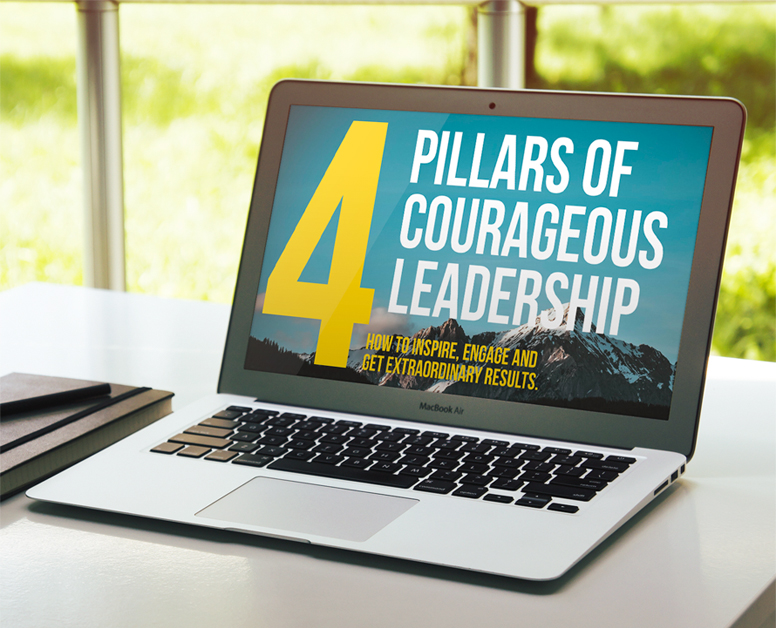 A Summary of The Courage of a Leader® 4 Pillars
A Summary of The Courage of a Leader® 4 Pillars